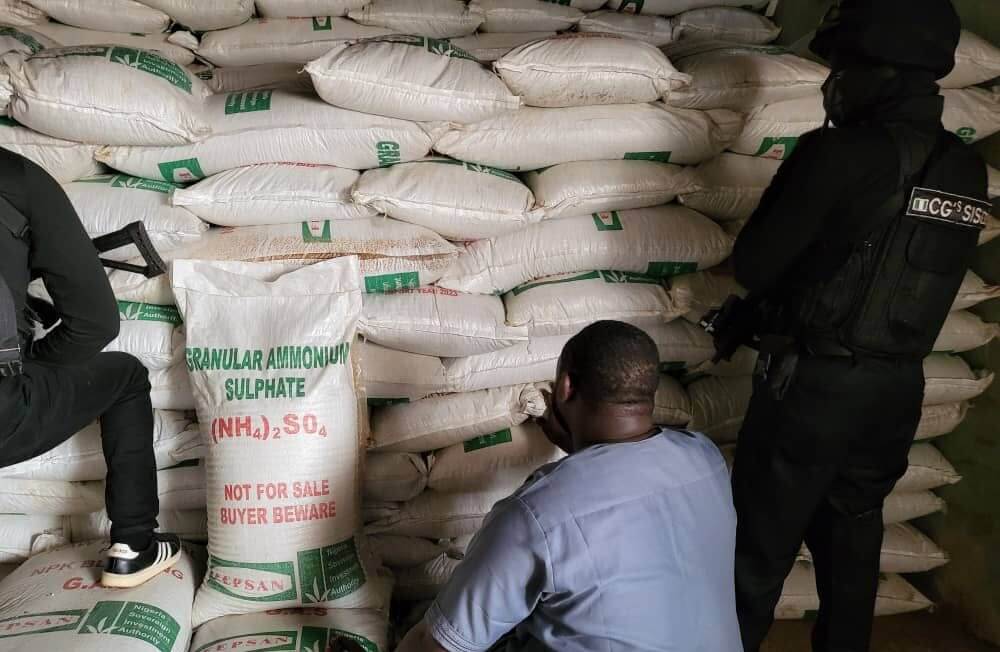The Central Bank of Nigeria on Wednesday announced the allocation of 2.15 million bags of fertiliser, valued at over N100bn to the Ministry of Agriculture and Food Security.
The CBN Governor, Yemi Cardoso, who stated this noted that the Central Bank’s fertiliser contribution aims to amplify food production capabilities and foster price stabilization within the agricultural sector
Advertisement
Cardoso assured that the bank will continue to implement comprehensive measures to curb inflation but noted that inflationary pressures may persist, predominantly driven by escalating food prices, in the short term.
Cardoso stressed the critical need to address food inflation as a pivotal aspect of managing headline inflation rates.
He explained that the CBN has veered away from direct quasi-fiscal interventions and transitioned towards leveraging conventional monetary policy tools for executing monetary policies effectively,
“The CBN has veered away from direct quasi-fiscal interventions and transitioned towards leveraging conventional monetary policy tools for executing monetary policies effectively,
Advertisement
“My team and I reiterate our unwavering commitment to prioritising price stability and instilling confidence in the Nigerian economy by upholding consumer price stability and ensuring a balanced foreign exchange market,” he added.
Nigeria’s inflation rate had risen to a record 29.90 per cent in January, principally driven by the high cost of food and non-alcoholic beverages, the National Bureau of Statistics has said.
In December 2023, inflation was estimated by the bureau to be at 28.92 per cent.
Year-on-year-basis inflation rose 8.08 per cent higher compared to the rate recorded in January 2023, which was 21.82 per cent.
During the review period, the NBS said on a divisional level, food and non-alcoholic beverages contributed 15.49 per cent to inflation, housing, water, electricity, gas and other fuel contributed 5.0 per cent while clothing and footwear accounted for 2.29 per cent, among others.
Advertisement
The food inflation rate in January 2024 was 35.41 per cent on a year-on-year basis, which was 10.18 per cent higher compared to the rate recorded in January 2023 at 23.75 per cent.
The NBS attributed the rise in food inflation to the increases in prices of bread and cereals, oil and fat, potatoes, yam and other tubers, fish, fruit, meat, vegetables and milk, cheese and eggs.
The case was not different in the urban areas where the inflation rate rose to 31.95 per cent, which was 9.40 per cent points higher compared to the 21.63 per cent recorded in January 2023.
The rural inflation rate in January 2024 was 28.10 per cent on a year-on-year basis. This was 6.97 per cent higher compared



